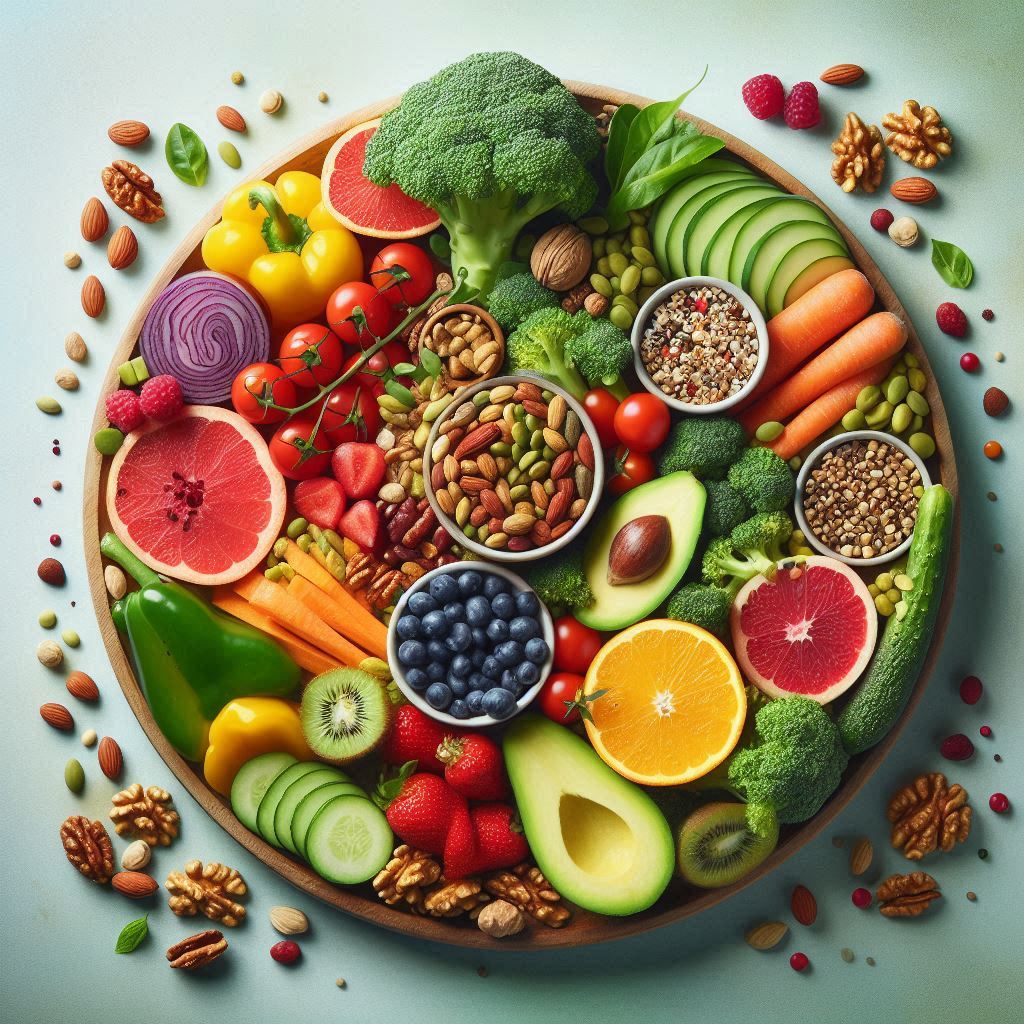Blogs
The Essential Guide to Nutrition: Unlocking the Power of Nutritional Health
- Introduction to Nutrition
- Defining Nutritional Health
- The Importance of Nutrition in Daily Life
- What is Nutrition? Understanding the Basics
- Key Components of a Balanced Diet
- Macronutrients: The Building Blocks of Nutrition
- 6.1 Carbohydrates
- 6.2 Proteins
- 6.3 Fats
- Micronutrients: Vital for Health
- 7.1 Vitamins
- 7.2 Minerals
- The Role of Water in Nutrition
- Dietary Fiber: Benefits and Sources
- Nutrition for Different Life Stages
- How to Choose Quality Nutrition Sources
- Health and Nutrition for Disease Prevention
- Common Misconceptions about Nutrition
- Sustainable and Ethical Eating
- Conclusion: Embracing a Healthy Lifestyle
Introduction to Nutrition
Nutrition plays a vital role in our lives, influencing everything from our energy levels to our mental clarity and long-term health. Understanding what good nutrition entails can help you make the best choices for a healthier lifestyle.
Defining Nutritional Health
Nutritional health refers to the state of one’s physical health based on dietary intake and the body’s ability to absorb and utilize nutrients. It’s about finding the right balance to fuel our bodies efficiently and to prevent health issues.
The Importance of Nutrition in Daily Life
Nutrition is foundational to wellness, impacting every cell, muscle, and organ in our body. Good nutrition aids in maintaining a balanced immune system, cognitive function, and even emotional well-being.
What is Nutrition? Understanding the Basics
Simply put, nutrition is the process by which our bodies take in food and use it for growth, repair, and daily functioning. It’s about what we eat, how our body processes it, and how it affects our overall well-being.
Key Components of a Balanced Diet
To be “balanced,” a diet must include the correct proportions of macronutrients (carbohydrates, proteins, fats) and micronutrients (vitamins, minerals) essential for the body’s growth and maintenance.
Macronutrients: The Building Blocks of Nutrition
6.1 Carbohydrates
Carbohydrates are the main source of energy for our bodies. They are found in foods like grains, fruits, and vegetables. Whole grains are particularly beneficial as they provide sustained energy and essential fiber.
6.2 Proteins
Proteins are crucial for tissue repair and growth. Animal products like meat, dairy, and eggs, as well as plant-based sources such as beans, nuts, and legumes, are high in protein.
6.3 Fats
Though often misunderstood, fats are essential for cell function, hormone production, and energy storage. Healthy fats are found in foods like avocados, nuts, seeds, and olive oil.
Micronutrients: Vital for Health

7.1 Vitamins
Vitamins such as A, C, D, and E help in immune function, skin health, and vision. Consuming a variety of fruits, vegetables, and dairy products can ensure you’re getting enough.
7.2 Minerals
Minerals like calcium, potassium, and iron are essential for bone health, hydration, and oxygen transport in the blood. Foods like leafy greens, dairy, and lean meats are excellent sources.
The Role of Water in Nutrition
Water is vital for digestion, nutrient absorption, and transportation throughout the body. Staying hydrated supports metabolic processes and keeps organs functioning optimally.
Dietary Fiber: Benefits and Sources
Fiber supports digestion and helps keep blood sugar levels stable. It can be found in fruits, vegetables, and whole grains.
Nutrition for Different Life Stages
Our nutritional needs change throughout our lives. Infants, children, adults, and the elderly all require specific diets tailored to support their growth, maintenance, or aging bodies.
How to Choose Quality Nutrition Sources
Opting for whole, unprocessed foods is generally the best way to maintain good health. Local and organic produce, lean proteins, and whole grains are examples of nutrient-dense choices.
Health and Nutrition for Disease Prevention
A balanced diet rich in vitamins and minerals can help prevent chronic diseases like diabetes, heart disease, and obesity.
Common Misconceptions about Nutrition
Many people believe myths about dieting, such as “all fats are bad” or “carbs should be avoided.” Understanding the facts can help you make better dietary choices.
Sustainable and Ethical Eating
Choosing foods that are environmentally sustainable and ethically sourced supports global health and can make a positive impact on the environment.
Conclusion: Embracing a Healthy Lifestyle
Prioritizing nutrition is one of the best steps toward a healthy and fulfilling life. By eating mindfully and making balanced choices, you can improve your overall well-being.
FAQs
1. What is the importance of a balanced diet?
A balanced diet provides all essential nutrients in the right proportions, helping maintain good health and prevent chronic diseases.
2. How much water should I drink daily?
While it varies, a common recommendation is around 8 cups (2 liters) a day, but individual needs differ.
3. What’s the difference between macronutrients and micronutrients?
Macronutrients (carbs, proteins, fats) provide energy, while micronutrients (vitamins, minerals) support various body functions.
4. How can I get enough protein on a vegetarian diet?
Plant-based sources like lentils, beans, nuts, and quinoa are excellent options for meeting protein needs.
5. Can good nutrition improve mental health?
Yes, certain nutrients, such as omega-3s, vitamin D, and antioxidants, have been shown to support mood and cognitive function.



